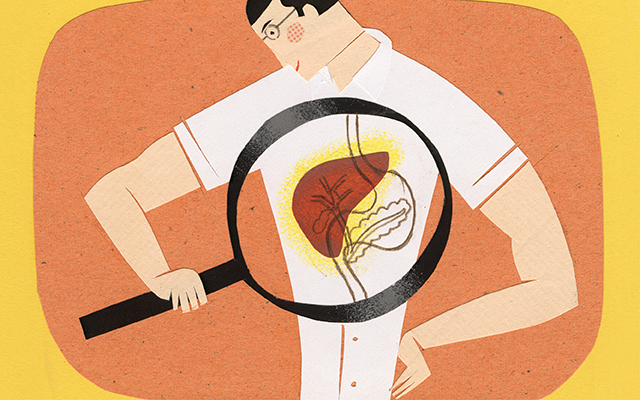Since ancient times, healers have been fascinated with the notion of our human uniqueness. Certainly, the idea of personalizing a nutritional plan to an individual is nothing new. The traditional Greek, Chinese and Ayurvedic traditions all prescribed food-based remedies based on highly detailed observations and intuitive knowledge gathered about the individual patient. And of course, modern health professionals regularly identify individual nutritional deficiencies and suggest dietary solutions.
Suddenly though, “individualized nutrition” and “personalized medicine” have become the phrases on the lips of many of today’s most visionary health, wellness and fitness professionals. In fact, many insist that personalized nutrition is poised to become the next diet megatrend. Thanks to breakthroughs in genetic research and clinical testing, this custom-tailored approach to nutrition is becoming more practical, more sophisticated and vastly more promising – not just for the acutely ill or severely deficient, but for average individuals who want to maintain their ideal weight, maximize vitality, slow aging and steer their bodies out of genetic danger zones.
Getting On the “You” Boat
Most of us have gotten used to receiving our nutritional wisdom in the form of lowest common denominators and rules of thumb – food pyramids and RDAs aimed at no one in particular, new-deal diets and supplements that work for some people, and wreak havoc on others.
Well, to heck with recommendations for the average individual: This is all about your chemistry, your genetics, your own biological quirks and physiological anomalies. Armed with the right knowledge (most of which is currently available in the form of relatively straightforward lab tests), you can proceed much more directly to the diet and supplementation that is precisely right for your unique body.
Individualized nutrition helps you detour around the over-generalized advice, vitamin-bottle hyperbole and popular-diet fads that define most people’s approach to nutrition. It also helps you bypass the trial-and-error approach that traps so many in mystifying yo-yo weight cycles and low-energy eddies, and saves you the trouble, expense and potential danger of supplementing and medicating in areas you shouldn’t be.
Individualized nutrition is not to be confused with popular diets, like the Blood Type Diet, that simply group people into blood or metabolic “types.” The theory behind such diets is that our type characteristics reflect the path of our ancestral evolution over 40,000 years or so, and that this evolutionary path – the result of natural selection based on genetic variations – determines our core physiology and the nutrition we require to feel and function our best. While useful in some ways, the weakness with purely type-based diets is that they only present part of the story – a story that is long on theory and historical conjecture but short on confirmed, individually based fact. Rather than link your nutritional plan to educated guesses about where your physiology came from, most individualized nutrition experts would rather see you consider precise, clinically established data about where your biochemical and genetic makeup stand right now.
Just as no two people have matching fingerprints, neither do the have identical biochemical, anatomical and molecular characteristics. Roger Williams, Ph.D., a renowned biochemical expert who in 1956 published Biochemical Individuality – the first major work on this topic – proved that we inherit unique nutrient needs because we inherit unique digestive, absorptive and enzymatic patterns. The complex interlay of these patterns, and enormous resultant variety of biochemical results, Williams argues, means that there is no such thing as a “normal” or “average” human body, and that in fact, “practically every human being is a deviate in some respects.”
Over the period of a day, one “normal” person’s body may metabolize and excrete several times more of a particular mineral than another’s might. Over a period of weeks or months, one person may require significantly more of a certain nutrient to stay healthy.
Over the period of a day, one “normal” person’s body may metabolize and excrete several times more of a particular mineral than another’s might. Over a period of weeks or months, one person may require significantly more of a certain nutrient to stay healthy. It stands to reason that if a large group of people were fed precisely the same dietary intake, some would thrive, while others would suffer symptoms of excess or deficiency. For some, the results of such an excess or deficiency might be relatively minor. In others, the deficiency might cause the emergence of allergies or intolerances that weren’t previously apparent; it might also flip a genetic “switch,” causing them to develop a hereditary disease that, under ideal nutritional conditions, they might have successfully avoided.
As Williams wrote in Biochemical Individuality, “The whole problem of human health and welfare is vastly different if the population, instead of being composed mostly of individuals with normal attributes, is made up of individuals all of whom possess unusual attributes – individuals who deviate from the normal range in several of the numerous possible particulars.”
Of course, Williams’ 1950s hypothesis has now been conclusively borne out by the mapping of the human genome. We now know that there are more than a million single-nucleotide polymorphisms (SNPs) – points in the genome where individuals differ in their genetic sequence. These account for an astonishing number of “possible particulars,” and perhaps even more astonishing implications for the health industry.
It is now apparent, for example, that two individuals with slightly different genes will metabolize substances (such as those found in food, supplements and pharmaceuticals) at tremendously different rates and with very different effects. They may be prone to totally different diseases, and respond very differently to nutrient and drug therapies. These are factors, however, that remarkably few traditional diet, supplementation and pharmaceutical strategies take into account. And that’s something crusaders for individualized nutrition are determined to change.
Designer Diet
Dr. Gregory H. Tefft, a chiropractor, board-certified naturopathic physician and author of For Your Body Only, is one such crusader. In his book, Tefft begs his readers to forego “miracle” diets and one-size-fits-all nutritional advice, and instead opt for a plan as unique as they are.
Tefft’s book (and, ultimately, the entire argument for individualized nutrition) is based on the premise that because each person is biochemically unique, each requires a customized diet for optimal health. Individualizing your diet, says Tefft, can relieve the root causes of diseases, as well as eliminate the cause of many chronic problems like fatigue, rashes and weight gain. By giving your body precisely the nutrients it needs, you can achieve a state of unprecedented wellness while sidestepping the all-to-common and dangerous practice of superficially treating the symptoms of deficiency and intolerance.
Because each person is biochemically unique, each requires a customized diet for optimal health.
Of course, arriving at all the right answers involves acquiring some solid data. In his book, Tefft suggests an astonishing variety of detailed typing and profiling mechanisms, from “quick checks” based on home-based evaluations of easily observable data like blood and body type, pH balance, pulse rate, hair and skin characteristics, to a battery of clinical tests that deliver precise, detailed and quantitative profiles of your body’s biochemical, hormonal, metabolic and genetic makeup. This information, by extension, can reveal latent imbalances, dysfunctions and inherent physiological patterns that, with expert guidance, you can often effectively correct or compensate for without medical intervention.
Profiling of this kind usually requires you to supply some combination of urine, hair, saliva and/or blood samples (the number, nature and schedule of such samples will depend on the profiles you request). Your samples are analyzed in a laboratory, and the results are compiled and reported to you and/or your health professional.
Getting the results is easy. Interpreting and weighing the evidence is a bit trickier, and that’s where having good professional guidance is essential. It’s important to note, for example, that many blood, saliva and urine tests provide only a snapshot of your body’s biochemical status at a given time. Real expertise is required to administer tests in the proper combination and at proper intervals, to interpret the complex results, identify pathologies and then determine a proper course of action. Genetic testing reveals the information permanently encoded in your DNA, but it cannot, by itself, evaluate how your genetic predispositions are currently playing out or suggest specific strategies to optimize your genes‘ “expression” in the future. For that you need professional experience and expertise, and some insightful suggestions about how you can tailor your diet, supplementation and exercise strategies to fit your personal biochemistry.
Know It All
Unfortunately, while all the clinical knowledge and technology for personalized typing and testing is currently available, and its value well established, the actual practices of typing and testing are still not widely understood or offered by most health professionals. As a result, individuals seeking this sort of personalized-nutrition guidance may have trouble finding it. “Sadly, there still aren’t very many docs out there who know about this testing or do it regularly,” acknowledges Tefft. “Most doctors, when presented with the research and results, become very interested. Still, it usually takes months of studying the data to make them comfortable.”
Dr. Heith Root, a chiropractic neurologist in San Antonio, Texas, has offered individualized nutritional testing for several years, and has recently begun offering patients nutritional guidance based on genomic testing for SNPs. While the insights available through such tests are enormously important, he asserts, “they still aren’t being employed in most traditional healthcare practices.” But it’s just a matter of time, he believes, until they are.
“Genomic tests can tell you which diseases you may be most predisposed toward, to which preventative and treatment therapies you’re likely to respond best, and what kind of proactive nutritional program is most likely to keep you in good health,” says Root. The required DNA sample can be collected by a simple mouthwash-swish procedure, and the costs are surprisingly reasonable. (Check out Genovationstm for a line of genetic tests.)
“I’m really happy to offer this at the lowest possible cost because it’s so important and so empowering for both the patient and the practitioner,” he explains. “It is like getting to finally pick up and look at cards you were dealt at birth – cards that up until now have been lying face down on the table. Once you know the hand you’re playing with,” says Root, “you can direct your energy in a more focused, effective way.”
Individualized-nutrition proponents like Dr. Root and Dr. Tefft particularly appreciate that individual testing helps patients reclaim responsibility for their own health through diet, exercise and lifestyle changes. Rather than inadvertently triggering problems through inappropriate diet and supplementation choices, waiting for symptoms to show up and then seeking a doctor’s help, this testing, Root points out, lets you make more informed, proactive life choices. It also lets you employ your doctor more as a health advisor and less as an emergency fix-it person.
“Once you know what your genetic and biochemical weak links are, you can learn how to avoid activating or exacerbating them,” Root explains. “And even if they are already activated, you and your doctor at least know how to treat the problem most effectively.”
This article originally appeared as “Individualized Nutrition.”




This Post Has 0 Comments